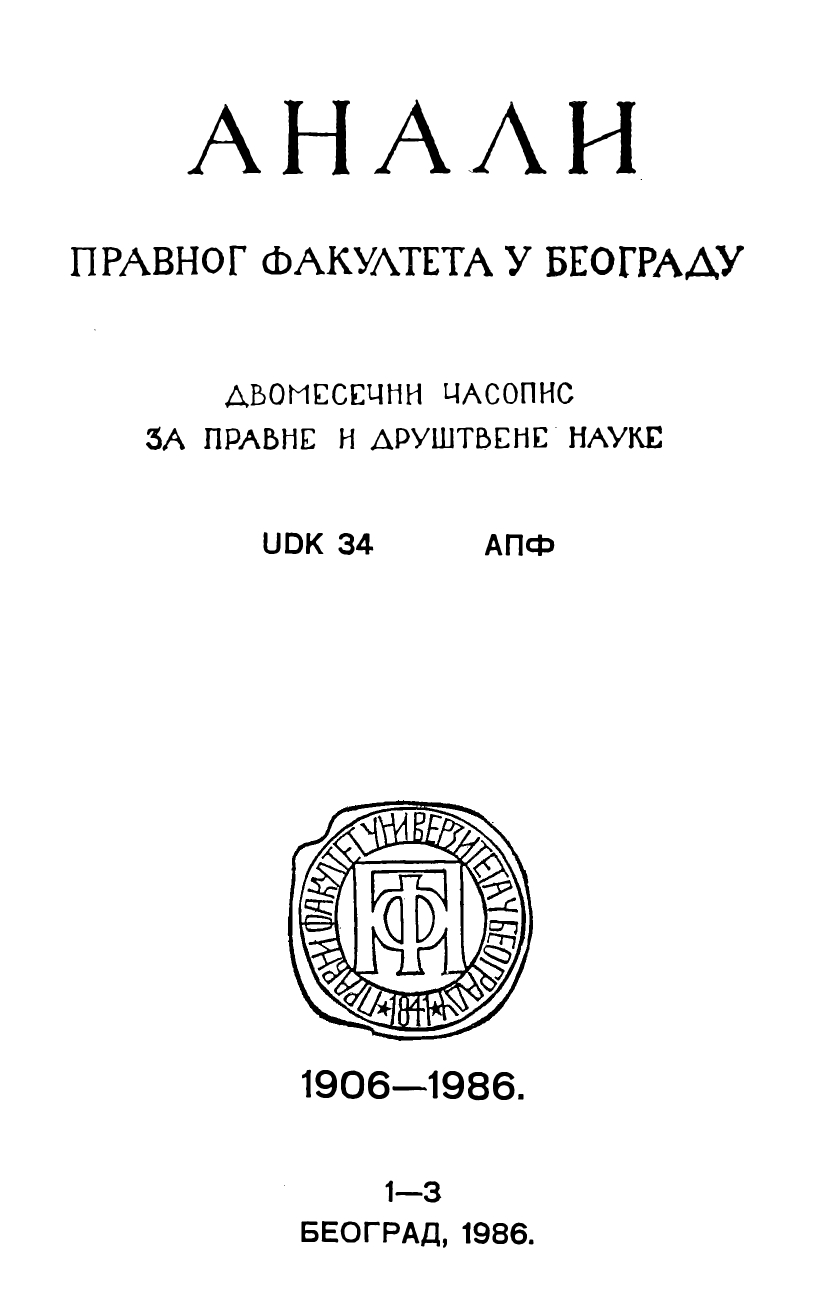СЛИЧНОСТИ ДРЖАВНО-ПРАВНОГ ПОЛОЖАЈА ПОКРАЈИНА ПО УСТАВНОМ НАЦРТУ СТОЈАНА ПРОТИБА (1920. ГОД.) И ЗЕМАЉА ПО ВАЈМАРСКОМ УСТАВУ (1919. ГОД.)
SIMILARITIES IN STATE-LEGAL POSITION OF PROVINCES, ACCORDING TO STOJAN PROTIC’S CONSTITUTIONAL DRAFT (1920), AND OF LANDS ACCORDING TO THE WEIMAR CONSTITUTION (1919)
Author(s): Olga PopovićSubject(s): History, Law, Constitution, Jurisprudence, Constitutional Law, Pre-WW I & WW I (1900 -1919)
Published by: Правни факултет Универзитета у Београду
Summary/Abstract: The Weimar Constitution and Protic's Constitutional Draft, although differing in many an aspect, contain essentially similar solutions of the question of the form of state organisation. They were inspired by the same basic idea, namely ensuring of unitary character of the state and at the same time satisfying strong requests for particularity of the existing historical-political, and in case of Yugoslavia also national, entities. Relatively large lands, i.e. provinces developed on the ground of historical tradition and the will of interested population, acquired legal status which was characterized by two principles, namely: (i) high degree of decentralisation of executive power in favour of the lands, i.e. provinces and (ii) the unity of legislative power entrusted in a sovereign way to the central legislative body, but followed with the possibility, laid down by the constitution, of participation by lands and provinces too, both by means of enacting their own laws and statutes within the limited scope of jurisdiction, and by taking part in the carrying out of legislative power at the level of the state. On the other hand, the realisation of the possibility of enacting own laws and statutes in both cases is entirely dependent on the will of the state legislative body, while the participation of these units, as such, in the legislative power at the state level is ensured through a body where they are represented proportionally to numerical strength of their population. Their role in the legislative activity is thus essentially less important than the one pertaining to the representation of the people as an entirety. In terms of enacting and amending the constitution, the lands according to the Weimar Constitution have somewhat greater role than the provinces according to Protić’s Draft, but in both cases a change of the constitution may be voted for even without agreement by the representatives of provinces, i.e. lands, namely also against their will.
Journal: Анали Правног факултета у Београду
- Issue Year: 34/1986
- Issue No: 1-3
- Page Range: 152-161
- Page Count: 10
- Language: Serbian

